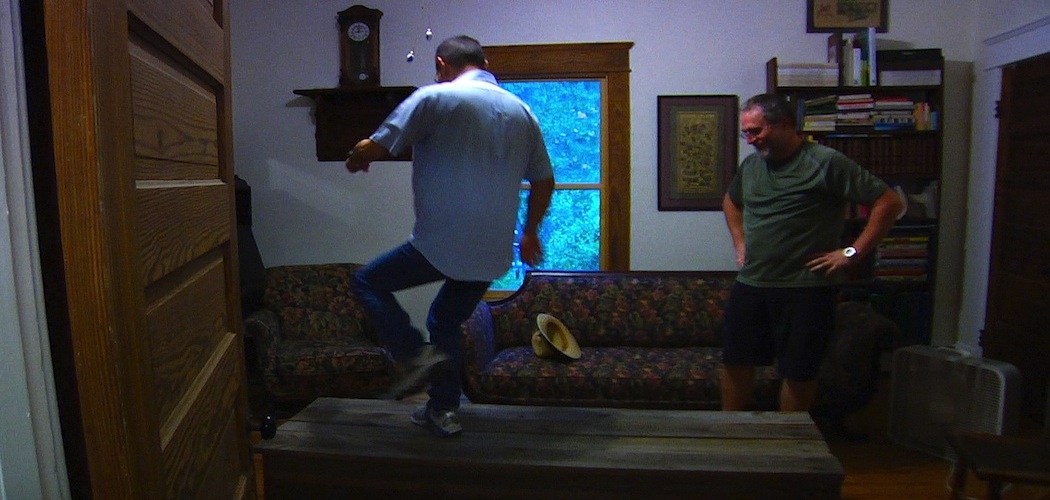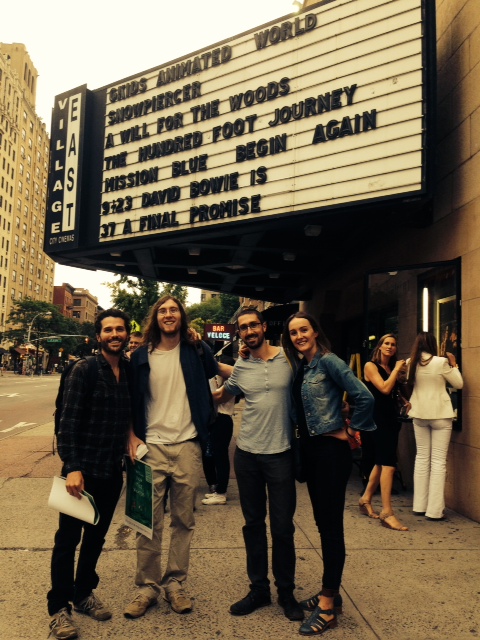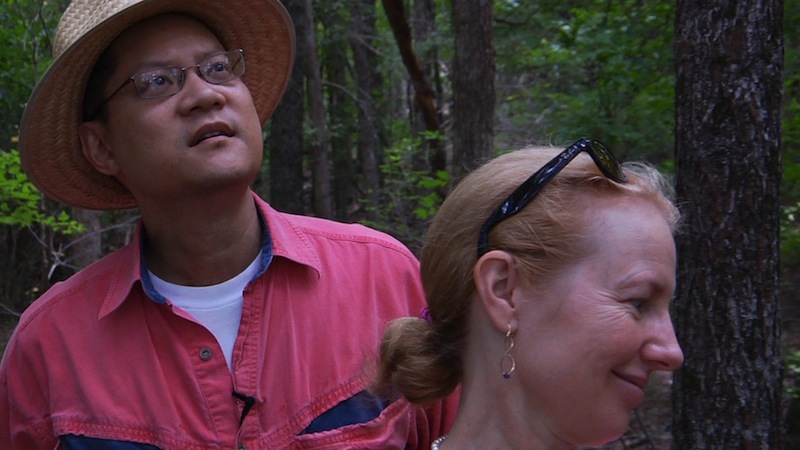Advertisement
It’s Not Easy Being Green For This Leading Man, Especially After Death

There’s an old joke people tell when driving by cemeteries, “Mount Auburn… people are dying to get in there.”
It’s the kind of humor Clark Wang uses to ease his way through end-stage lymphoma in “A Will for the Woods,” a documentary about Wang’s pursuit of environmentally-friendly burial and the movement that’s making it possible. When a green burial advocate asks how many people Wang expects at his funeral, he replies, “We expect five at least. I’ve hired four in advance.” Everyone around the table laughs.
“A Will for the Woods” screens at the Museum of Fine Arts, Boston on Oct. 11 at 2:30 p.m. Two of the four co-directors, Jeremy Kaplan and Tony Hale, grew up in the Boston area, attended Boston College together, and will be present for post-film Q & A along with co-director Brian Wilson. (All four co-directors, including Amy Browne, appear in the photo below.)

Wang’s humor offers levity while the crux of the film remains clear: In the United States, death is big business and its processes and products do more environmental harm than good. What Wang wants, explains Joe Sehee, founder of the Green Burial Council (GBC), is to be buried “the way a vast majority of humanity throughout time have cared for their dead.”
And yet, as this film points out, what Wang wants can be difficult to find. Sehee is one of the many people Wang befriends on his quest to rest on conservation land. The GBC has a goal of conserving a million acres this way and developed the first eco-certification standards for the industry. Massachusetts, for example, has just two green certified funeral parlors and just one cemetery.
“A Will” opens smartly with a montage of home videos from Wang’s life. Clips of him playing accordion and folk dancing, probably in the early '90s, are juxtaposed with close-ups of insects. (We later learn he was known as the “Chinese polka cowboy.”) The visual connection between nostalgia and nature is made. Then the man we’ll learn is Wang climbs into, then on top of his coffin, and does a little jig.
A Will for the Woods - Official Trailer from A Will for the Woods on Vimeo.
While Wang is sympathetic, he is not depicted as extraordinary. The directors have given him a heavy burden and he borders on mustering enough magnetism to carry the film through. Other filmmakers would have made him one of three main characters. Then again, the poor man is dying. Part of what this film risks is to tell that story, too. What is it like to die of cancer? Few documentaries brave the ICU and even fewer show a scene in which a significant other climbs into bed to embrace her dying loved one.
“A Will for the Woods” is one of a handful of recent documentaries that have investigated the too-rarely broached topic of dying in America. “We Will Live Again” (about cryonics) and “Die Like an Egyptian” (about a man obsessed with crafting his own coffin) played IFFBoston in 2013; “Sanjiban” (about a filmmaker’s final days) and “Furever” (about pet death) played locally as well; one of the most bold-faced and likely overlooked films about the dying process, “Stopping For Death” (a profile of a hospice house) played Newburyport Documentary Film Festival last year. I'll admit I had to hang in there past the first 20-minutes of this one but was awed by its raw approach to end of life.
“A Will” sets itself apart as a feature-length films that sticks with its living character after death. While Wang’s body awaits chemical-free preparation, and after it is shown iced and still, the woman leading the ritual says, “Let’s stop and ask for his understanding for our awkwardness…” In this way, the filmmakers allow audience members to acknowledge their own discomfort with death. Maybe even with the film itself.

Earlier, Wang also distinguishes his mostly ordinary place in the living world. “Dying from lymphoma feels so empty and meaningless and pointless,” he says, and without his green burial mission, he’d feel like “just another of the countless cancer deaths…” “A Will for the Woods,” so adamantly about one man and one cause, asserts that when crafting an effective story, one can be enough.
Additional screenings of "A Will for the Woods," including one in Bath, Maine on Oct. 25 are listed here.
Erin Trahan edits The Independent and is teaching an adult education course for Montserrat College of Art that will travel to Montreal’s RIDM Film Festival this November.
More on Death and Dying